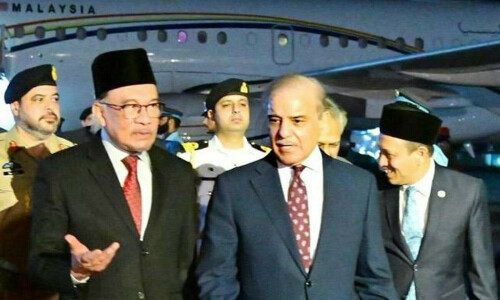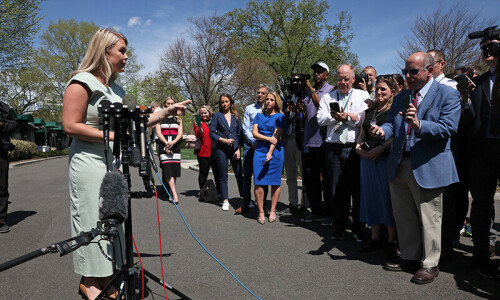KARACHI: Shell Pakistan Limited (SPL) is engaged with the government to allow import of differentiated fuels in a deregulated model which would set grounds for opening up the larger market.
While differentiated fuels can refer to both diesel and petrol, SPL’s Managing Director Omar Yaqoob Sheikh said the company was looking at introducing differentiated petrol. “Shell would be looking at higher RON [research octane number] fuels to be primarily imported because the base fuels required are not currently available locally. This would not impact the current main grade offering of 87 RON as differentiated fuel will be offered as an added product,” he said.
Differentiated fuels are based on two components — base fuels and additives. The choice of base fuel is determined by a number of key aspects such as the research octane number.
High octane enables a high compression ratio which in turn enables better fuel efficiency. Additives on the other hand are chemical compounds that, when added, improve some performance parameters such as detergency, friction reduction, etc.
Sheikh said most countries in our region have multiple product offerings over and above the main grade, including India, Indonesia, Thailand, Malaysia, Philippines, Singapore, Hong Kong, etc.
The benefit of differentiated fuels is more in terms of value for money, he said. Average vehicle age for cars in Pakistan is seven to 10 years. Higher quality fuels provide much enhanced cleansing, needed especially for older engines and are hence suited for value-conscious consumers. Other than value benefits, differentiated fuels reduce consumption which in turn significantly reduces CO2 emissions hence benefit the overall environment, he said.
Shell Pakistan, which has 12 storage installations across the country, is actively advocating extending the White Oil Pipeline for petrol transportation after being a major part of its establishment which has eased diesel supplies across the country.
The company has a 26 per cent share in the $480 million, 784km White Oil pipeline operated by Pak-Arab Pipeline Company (PAPCO), which runs from Karachi to Mehmood Kot. Along with inclusion of Motor Gasoline transport, the pipeline should also be extended from Mehmood Kot onwards to up-country for more expedient and efficient transport of fuels across the country.
On failure of Pakistan for not providing deregulated environment, Sheikh said fuel pricing is politically sensitive the world over. Most other developing markets were regulated in the past as well, and have slowly deregulated. “In a de-regulated environment, market forces will determine the final price,” he added.
Opening up the market will let the real market forces to settle in whereby industry players will be competing aggressively against each other for customers and, consequently, returns on their investments. It would allow implementation of world class standards in quality and environment (bringing the market closer to Euro-II specs). Margin flexibility will also help reduce malpractices by some retailers, like mixing and short measuring.
Describing the operating environment for OMCs (oil marketing companies) as very tough, he said the government fixes fuel margins which are insufficient to support badly needed infrastructure and growth investment. For example, Pakistan’s petrol demand has more than doubled since 2010, yet there has been very limited investment in storage and distribution of petrol.
Published in Dawn, September 16th, 2015
On a mobile phone? Get the Dawn Mobile App: Apple Store | Google Play











































